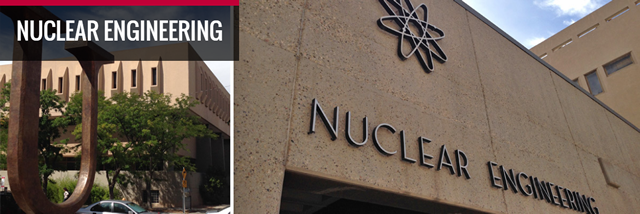
Nuclear Engineering ETDs
Publication Date
11-24-1972
Abstract
Filament wound/CVD (Chemical Vapor Deposition) carboncarbon composites have received considerable attention within the past few years due to desirable characteristics such as high heat of ablation, thermal shock resistance, strength improvement at elevated temperatures, and chemical inertness. However, poor mechanical properties in the transverse direction have hampered the total effectiveness of these composites in some applications and a study of the effects of porosity on transverse tensile strength of filament wound/CVD carbon carbon composites has been conducted.
Two types of filament wound/CVD carbon carbon composites were studied. A standard filament wound/CVD carbon composite, and a composite similar to the standard processed composite; but having short chopped carbon fibers sprayed on the substrate during the winding process. Volume fraction of open cell porosity was measured, and pore geometry, size, and orientation were determined.
A linear relationship was observed for the logarithm of transverse tensile strength as a function of volume fraction porosity. However, a considerable difference in the slopes of the lines for sprayed and unsprayed materials was observed, indicating the effect of a parameter other than volume fraction porosity. This additional parameter is pore size distribution.
The experimentally obtained data was also compared with theoretical models based on pore geometry, size and orientation and on fracture mechanics.
The agreement between the experimental results and the pore size geometry and orientation model is good. The agreement between experimental data and the fracture mechanics model is poor.
The transverse tensile strength of filament wound/CVD carbon carbon composites is drastically reduced by increasing volume fraction porosity. In addition, parameters such as pore size distribution, orientation, and geometry are also important, and should be considered when studying porosity effects.
Document Type
Thesis
Language
English
Degree Name
Nuclear Engineering
Level of Degree
Masters
Department Name
Nuclear Engineering
First Committee Member (Chair)
James Albert Horak
Second Committee Member
Barry Lynn Butler
Third Committee Member
Howard Linn Schreyer
Recommended Citation
Brassell, Gilbert William. "The Effect Of Porosity On Transverse Tensile Strength Of Filament Wound/Cvd Carbon-Carbon Composites.." (1972). https://digitalrepository.unm.edu/ne_etds/105
